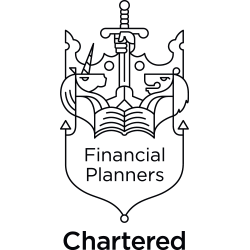These practical steps could help you to reduce your tax bill in retirement
The prospect of retiring may be something you have looked forward to for decades.
However, a significant financial hurdle that might affect your plans could be an unexpected tax liability on the income you draw.
Standard Life recently reported a concerning trend. More than 220 individuals in the UK paid £97,000 or more in taxes simply by fully withdrawing from their pension pots between October 2022 and March 2023.
Moreover, research conducted by the Institute for Fiscal Studies (IFS) shows that, for the first time ever, a larger share of over-65s were paying Income Tax than working-age people in 2023/24.
As you can see, overpaying tax in retirement could be costly. Fortunately, there are ways you can mitigate a potential bill in retirement and avoid making mistakes. Continue reading to find out how.
1. Make the most of your 25% tax-free lump sum
The way you draw wealth from your pension pot often has a considerable effect on the tax you need to pay on it.
You can typically draw 25% of your pension as a tax-free lump sum. You might decide to take this all in one go, or flexibly in smaller amounts.
While the most appropriate way to tax-efficiently draw from your pension will depend on your individual circumstances, many people make the mistake of drawing their entire fund as a single lump sum.
By doing so, only 25% of your pot is typically tax-free, while the rest is added to your taxable income and taxed at your marginal rate.
If this inadvertently pushes you into the higher- or additional-rate tax bracket, you might end up losing 40% or 45% of your fund to Income Tax.
So, instead of taking your pension all at once, it might be worth spreading out your withdrawals and not taking more than you realistically need.
Better yet, leaving more of your pension fund invested could give it more opportunity to continue generating investment returns.
2. Plan your retirement income as a couple and make the most of combined allowances
If you’re married or in a civil partnership, you could have a distinct advantage when it comes to paying tax in retirement.
Every individual benefits from their own tax-free Personal Allowance, which stands at £12,570 in 2024/25. Consequently, thinking about how you draw your income as a couple can help you to make the most of your tax-free allowances.
If your partner doesn’t use their full Personal Allowance and you pay Income Tax at the basic rate, they may be able to transfer £1,260 of their allowance to you. This is called the “Marriage Allowance”, and it could help you reduce your overall tax bill by £252 in 2024/25.
As such, it might be wise to sit down with your spouse or partner and plan your retirement income strategically to make the most of these combined allowances.
For instance, you could coordinate your withdrawals to ensure they stay within the combined tax-free allowances, minimising your overall tax liability in retirement.
3. Use cashflow forecasting to understand how much to draw from your pension
Taking more from your pension than you realistically need means you may also pay more Income Tax than is strictly necessary.
This is because, as you read above, your pension withdrawals are added to any other sources of income you draw, including your State Pension and any earnings you have.
So, if you draw more from your pension than you actually need, you might pay more tax than you need to, which could potentially push you into a higher Income Tax band.
Cashflow forecasting is a practical way to determine the level of income you’ll likely need to fund your dream lifestyle. Using data regarding your income, expenditure, assets, and liabilities can help establish the level of pension income you need to take and what represents a sustainable withdrawal rate from your fund.
Perhaps more importantly, cashflow forecasts can account for factors such as inflation, which might affect how much you need to draw from your pension in the future.
This could make it far easier to draw the correct amount from your pension so you pay an appropriate amount of Income Tax without making lifestyle sacrifices.
4. Check that your tax code is correct on your first pension withdrawal
Pensions Age reveals that HMRC repaid a total of £42 million to people who overpaid tax when they flexibly accessed their pensions in Q1 of 2024, with a record £198 million in overpaid pensions tax repaid in the 2023/24 tax year. So, it’s quite common for retirees to overpay tax on their first pension withdrawal.
This might happen because, when you first draw from your pension, you could be placed on an emergency “month one” tax code since HMRC assumes you will draw the same amount every month.
This rate is usually higher than the normal tax code, and you might end up paying more Income Tax on your initial withdrawal than needed. This is why it’s important to check your tax code and contact HMRC if it is incorrect to avoid any further errors.
Thankfully, you can typically claim back any overpayments you have made using the government website and submitting a claim to HMRC.
5. Be aware of the Money Purchase Annual Allowance if you continue contributing
While some people might be looking forward to halting work completely, you might prefer to continue working in retirement, perhaps to supplement your pension income or to maintain a routine and social circle.
If you are planning on continuing to contribute to your pension from your earnings, it’s vital to be aware of the Money Purchase Annual Allowance (MPAA). If you’ve started flexibly drawing from your pension, the MPAA effectively reduces the maximum amount you can tax-efficiently contribute to your pension to £10,000 gross in 2024/25.
If you have other savings or investments, such as an ISA, to avoid triggering the MPAA, it may be prudent to take income from these before accessing your pension if you’d like to continue making contributions from earnings. Since ISA profits aren’t subject to Capital Gains Tax or Income Tax, drawing income from these assets before your pension could allow you to maintain your standard of living while reducing a potential tax bill.
Get in touch
At Logic, we can help you manage tax during retirement to ensure you put as much of your hard-earned savings towards your desired lifestyle as possible.
If you have any questions, speak to us now. Please email us at info@logicfinancialservices.co.uk or check with your adviser.
Please note
This article is for general information only and does not constitute advice. The information is aimed at retail clients only.
A pension is a long-term investment not normally accessible until 55 (57 from April 2028). The fund value may fluctuate and can go down, which would have an impact on the level of pension benefits available. Past performance is not a reliable indicator of future performance.
The tax implications of pension withdrawals will be based on your individual circumstances. Thresholds, percentage rates, and tax legislation may change in subsequent Finance Acts.
Your pension income could also be affected by the interest rates at the time you take your benefits. The tax implications of pension withdrawals will be based on your individual circumstances, tax legislation, and regulation, which are subject to change in the future.
The Financial Conduct Authority does not regulate estate planning, cashflow planning, tax planning, Lasting Powers of Attorney, or will writing.

